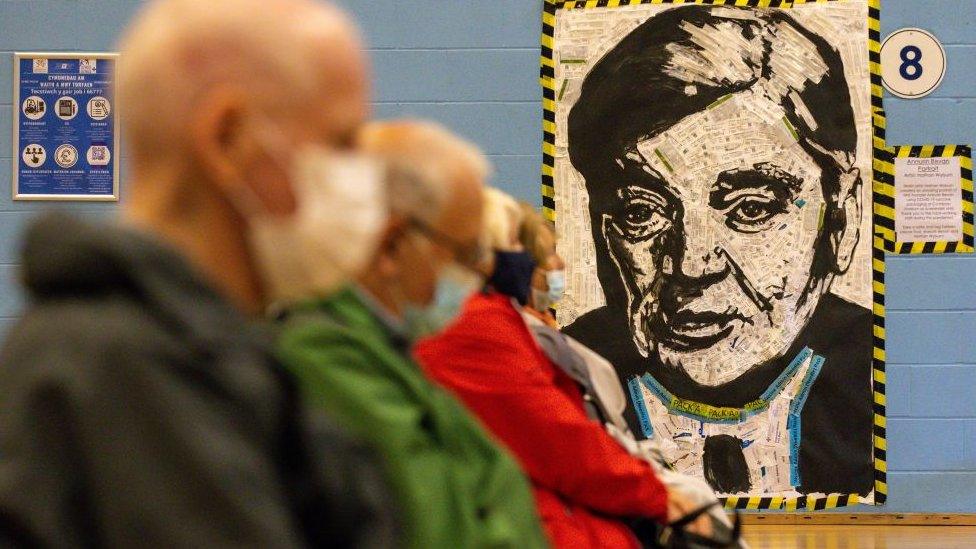Covid: Difficult winter in Wales if cases keep rising, says doctor
- Published
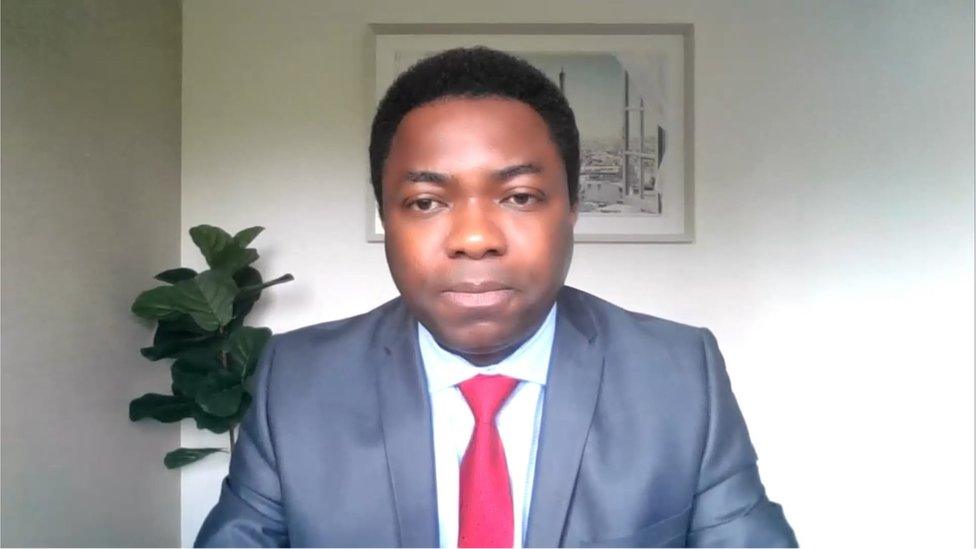
Kelechi Nnoaham says rising case rates are still concerning, despite vaccinations cutting admissions
If Covid rates keep rising, it could be a "very difficult autumn and winter" for the Welsh NHS, a doctor has warned.
Kelechi Nnoaham, director of public health at Cwm Taf Morgannwg health board, said everything must be done to "bend that trajectory".
He said although hospital admissions were lower due to vaccinations, the current trend in cases was worrying.
Even so, on Wednesday, there were 67 Covid patients in its hospitals - the highest since mid-February.
On Thursday, it also said three wards at the Royal Glamorgan Hospital, external in Llantrisant had been temporarily closed to visitors because of rising cases.
The health board covers Bridgend, Rhondda Cynon Taf and Merthyr Tydfil, with about 451,000 people living in it.
Hywel Dda health board, which covers Pembrokeshire, Carmarthenshire and Ceredigion, has taken some temporary measures to help it deal with "an extremely challenging, ongoing pandemic".
These include temporarily suspending elective orthopaedic surgery at Prince Philip Hospital in Llanelli and Withybush General Hospital, Haverfordwest, to provide more bed capacity in non-Covid areas.
Admissions and visiting to one ward at Glangwili General Hospital, Carmarthen, have also been stopped temporarily to manage a Covid-19 outbreak, with additional precautions being taken at two other wards.
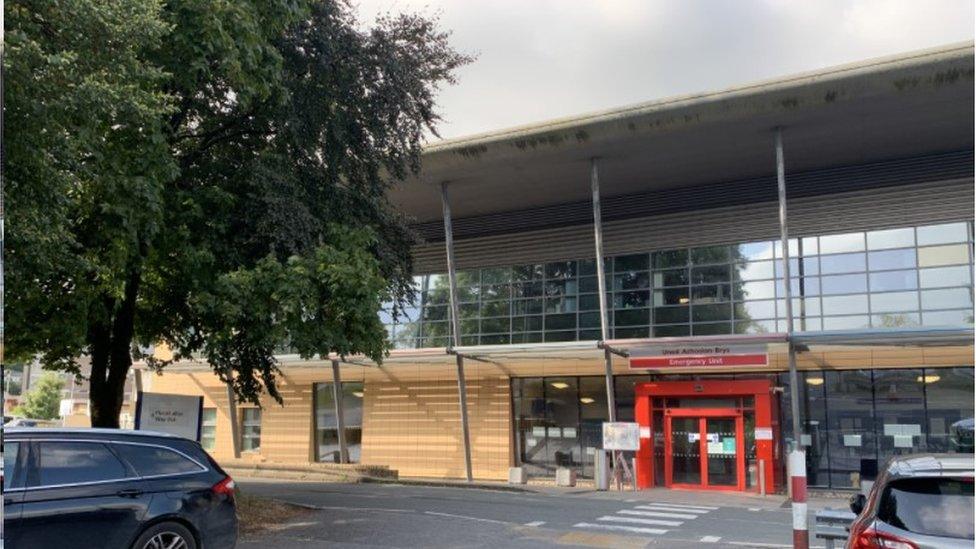
Visiting has been stopped at a ward in Glangwili Hospital to manage a Covid outbreak
"The rise in cases in Hywel Dda shows that, whilst hospital admissions are not as high as in previous waves, Covid-19 remains a serious risk to our health and our health service," said chief executive Steve Moore.
This comes after a critical care consultant said hospital staff felt "demoralised" to see the virus filling wards and intensive care units again.
Dr Ami Jones, who works at the Grange University Hospital in Cwmbran, Torfaen, believes misinformation has led to growing numbers of young, unvaccinated Covid patients in hospitals
Across Wales, the daily average of patients in hospital either with Covid or recovering from it was 383 on Wednesday, compared to 263 last week.
Of these, 44 people are in critical care or on ventilation - up from 33 - there were about 70 at this point in the second wave.
Prof Nnoaham said: "We recognise that, while the rates of hospital admission have not become very, very high, they are nonetheless increasing."
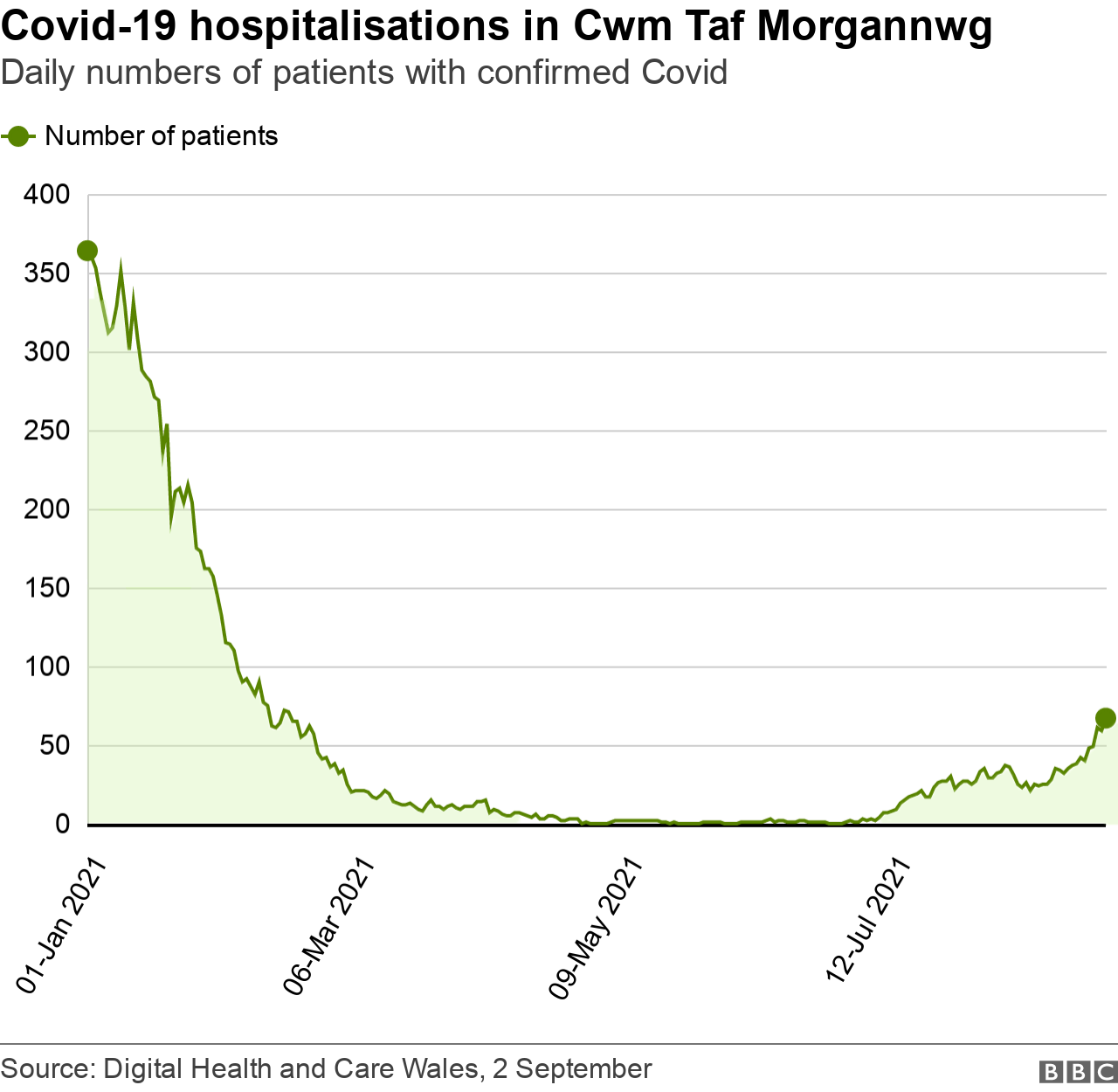

He said an audit of recently admitted Covid patients showed the majority were over 60, but a higher proportion of younger patients had been admitted with Covid compared with earlier waves.
"We did a deep dive on about 58 patients in recent days and weeks who have come into hospital as Covid patients, and we understand the profile much better.
"When you look at the numbers of young people in that cohort and compare it to the proportion of young people in any cohort of admitted patients during the first and second wave, it is higher this time.
"That is reflective of the fact that if you look at the age group that has the highest rates of infection now in Cwm Taf Morgannwg it is the people between the ages of 10 and 19, where the seven-day accumulative rates of infection are well over 800 cases per 100,000 people now."
'De-risk schools'
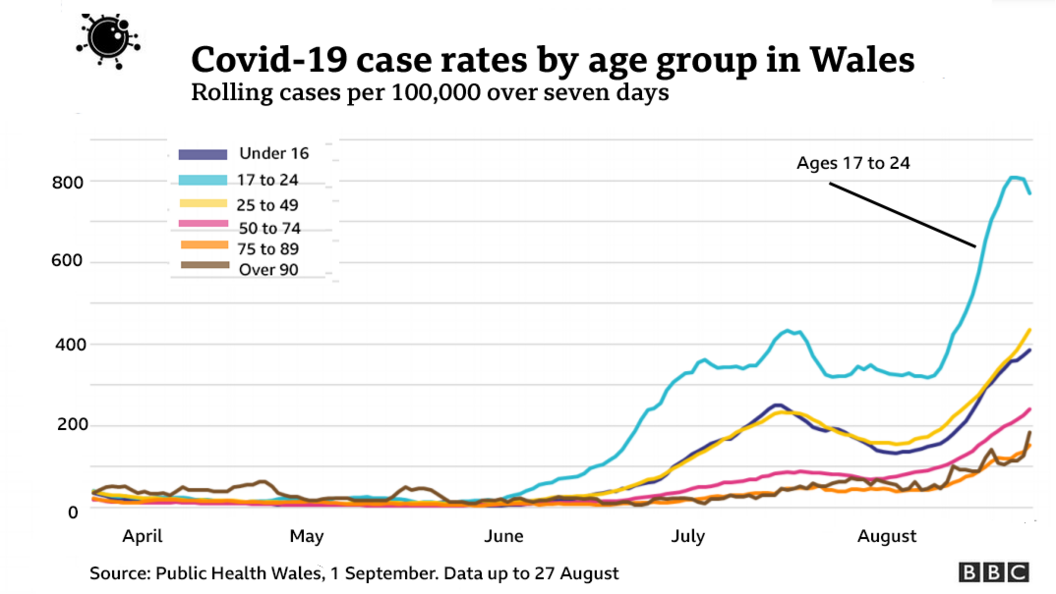

Prof Nnoaham said schools would need to "de-risk" ahead of reopening to students, at a time when Covid rates among students were high.
"Covid is still with us, it is circulating massively in 10 to 19-year-olds - many of whom are going back to school from this week."
He said schools would need to have updated their risk assessments "and identified where the biggest risks of transmission of Covid may be for students who are returning to school".
Welsh government guidelines are still that people should continue to take lateral flow tests, even if they do not have symptoms, because one in three patients with Covid are asymptomatic.
"For the schools, it means basic measures based on your risk assessment - like making sure that there is proper ventilation," he said.
"For some it may mean continued use of face masks in indoor classroom settings, and for some others it may mean just making sure that social distancing is happening as much as possible in places that are ordinarily likely to be crowded.

MOTHERS, MISSILES AND THE AMERICAN PRESIDENT: The story of Greenham told like never before
CITY OF HORSES: The people and traditions behind Swansea's urban horse community

- Published31 August 2021
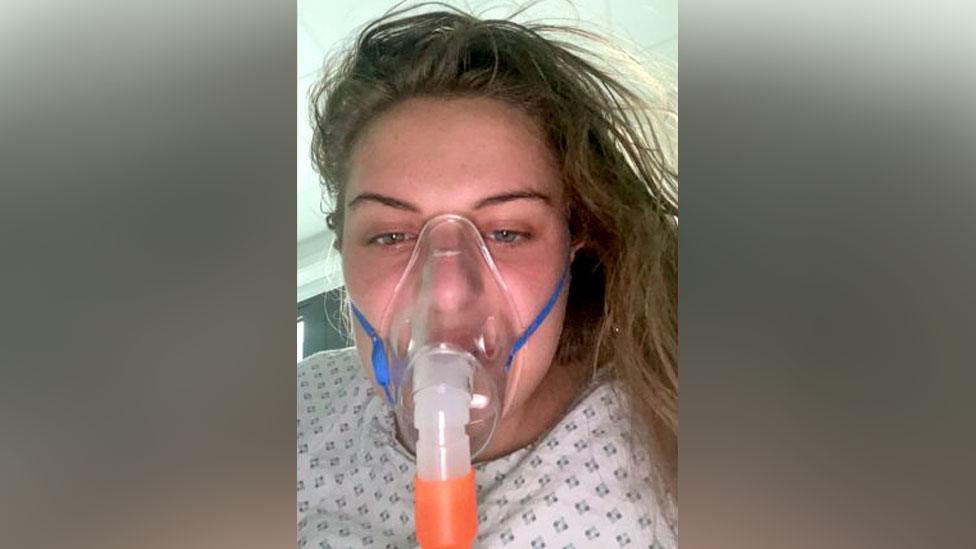
- Published29 August 2021
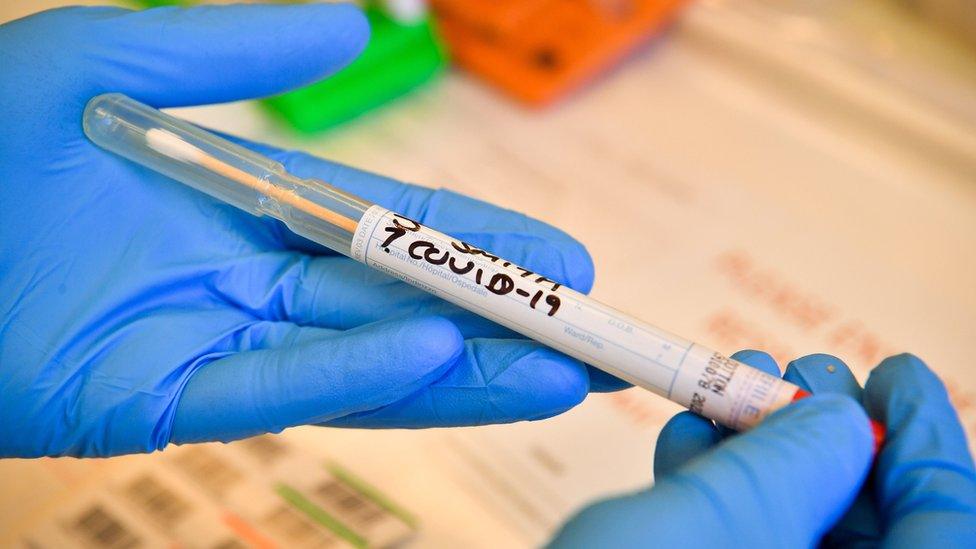
- Published27 August 2021
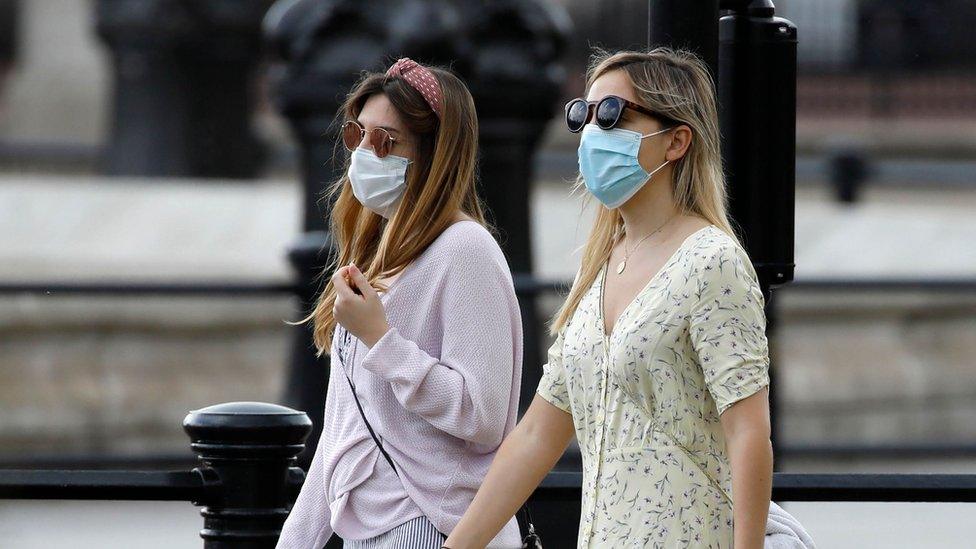
- Published4 July 2022
